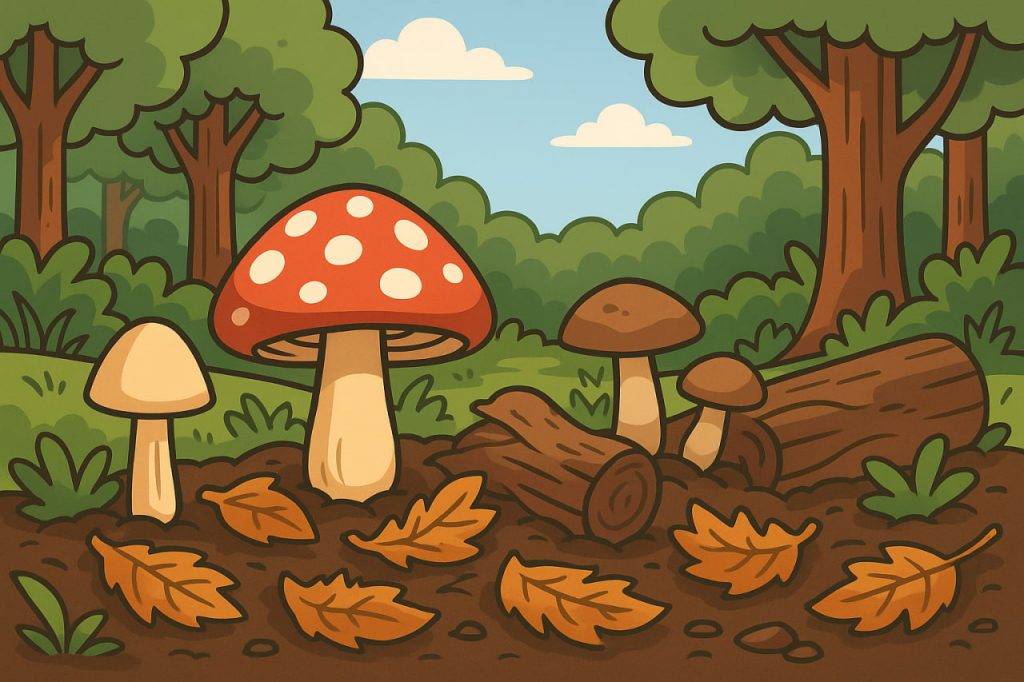Fungi are essential players in the natural recycling system of ecosystems. Unlike plants, fungi do not produce their own food through photosynthesis. Instead, they act as decomposers, breaking down dead organic matter such as fallen leaves, wood, and animal remains. Through this process, fungi release nutrients back into the soil, making them available for plants and other organisms. Without fungi, organic matter would accumulate, and ecosystems would lose their ability to sustain life efficiently.
The Role of Fungi as Decomposers
Fungi occupy a critical ecological niche by breaking down complex organic substances. They are among the only organisms capable of digesting materials like cellulose and lignin, which are found in plant cell walls. This unique ability allows fungi to recycle matter that most other organisms cannot process. By decomposing such substances, fungi maintain the nutrient cycles that sustain forests, grasslands, and even agricultural systems.
How Fungal Decomposition Works
Fungi use thread-like structures called hyphae that spread through soil, leaf litter, or wood. These hyphae release enzymes that chemically break down complex organic molecules into simpler compounds. For example, proteins are reduced to amino acids, and carbohydrates to simple sugars. The fungi then absorb these small molecules as nutrients. This external digestion process is highly efficient, allowing fungi to grow rapidly and colonize large areas.
Types of Organic Matter Broken Down
Fungi can decompose nearly every form of organic matter. They break down:
- Plant material such as leaves, wood, and roots.
- Animal remains, including fur, feathers, and even bones over long periods.
- Waste products, like dung, which are rich in nutrients but require specialized enzymes.
Some fungi specialize in specific types of material, while others can feed on a wide variety.
Contribution to Soil Fertility
As fungi decompose organic matter, they release vital nutrients, including nitrogen, phosphorus, and potassium, back into the soil. These nutrients are absorbed by plants, which then pass them through the food web. Fungi also help build humus, a dark, nutrient-rich component of soil that improves its structure, water retention, and fertility. Without fungi, soil would quickly lose its productivity.
Symbiosis and Ecosystem Balance
Many fungi form symbiotic relationships with plants, such as mycorrhizal fungi, which connect to plant roots and provide them with nutrients in exchange for sugars. This cooperation enhances decomposition and nutrient cycling. At the same time, fungi prevent waste buildup by ensuring that dead matter is constantly recycled, maintaining ecological balance.
Conclusion
Fungi decompose organic matter by breaking down complex molecules with enzymes, absorbing nutrients, and recycling them into the ecosystem. Their role as decomposers ensures soil fertility, supports plant growth, and keeps ecosystems balanced. Without fungi, life on Earth would struggle, as dead material would accumulate and nutrients would not be efficiently recycled back into the environment.
Glossary
- Decomposers – organisms that break down dead material, recycling nutrients into ecosystems.
- Hyphae – thread-like structures of fungi that spread into substrates and release enzymes.
- Enzymes – proteins that speed up chemical reactions, including the breakdown of organic matter.
- Humus – nutrient-rich organic material formed in soil after decomposition.
- Mycorrhizal fungi – fungi that form symbiotic associations with plant roots to exchange nutrients.


